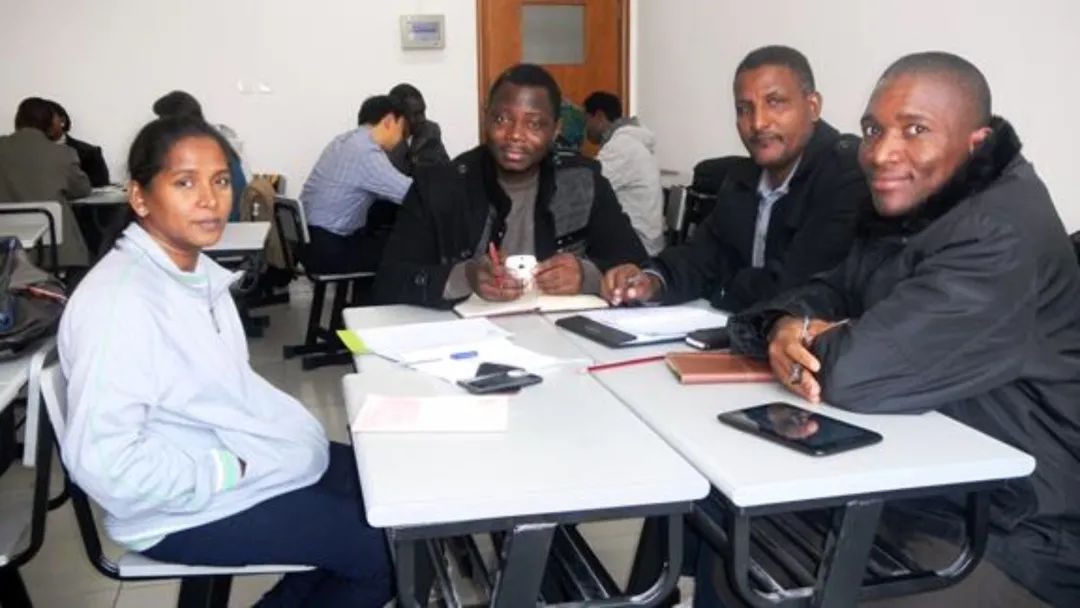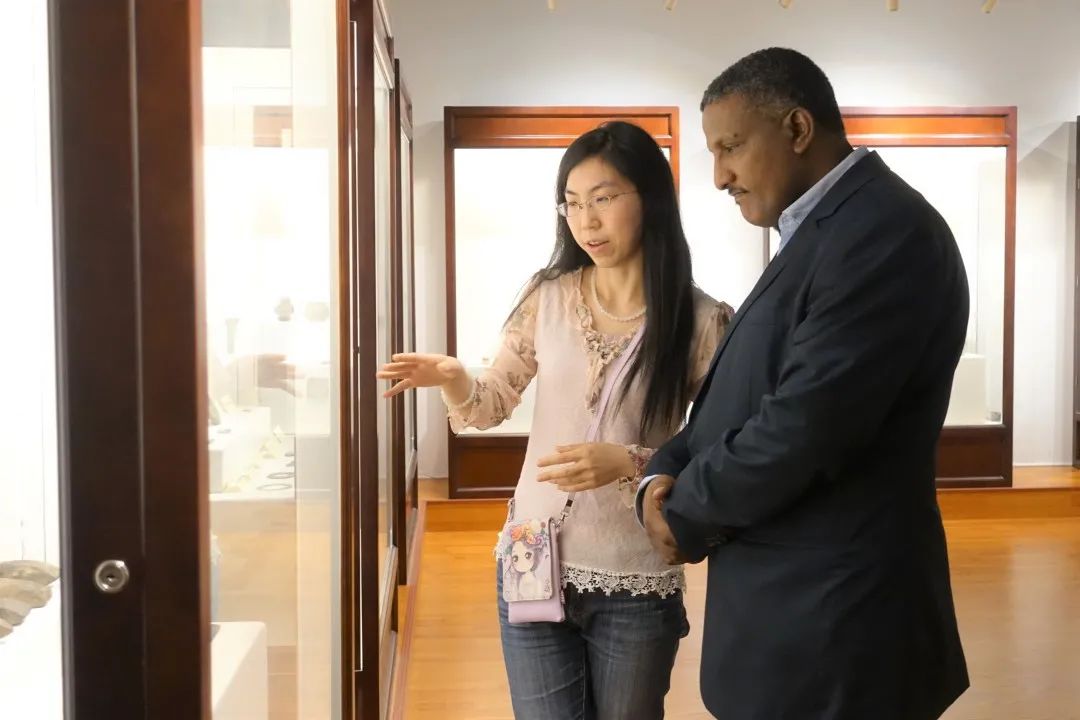
Muhammed Ahmedin Hassen (Ethiopia)
From 2013 to 2014, he joined ECNU's Master of Education Program in Developing Countries and obtained a Master of Education in Educational Leadership and Policy.
After returning to Ethiopia from East China Normal University, he was promoted to Deputy Minister of Education in just three years. Now he is studying at Peking University for Doctorate degree.
Why did you choose China and ECNU?
It is well known that China's investment in human capital has undergone a massive boom over the last decade and is visible and received recognition internationally. In addition to this, China has a very recent and live experience in alleviating poverty. My country, Ethiopia has been striving to alleviate poverty and demonstrated a two digit economic development since 2003, so China would be the right place to learn from.

I preferred ECNU not only because of its long history; but ECNU is one of the prestigious Universities in China. When we came down to the faculty of education and the International Centre for Teachers Education of ECNU; it has been continuously shinning based on its early foundation. It has a long and rich experience in teacher’s education and ECNU is the national base for secondary school principals training. These are among the reasons which instigated me to join ECNU.
What achievements did you accomplish in ECNU and how it'd helped in your career development?
Primarily it was my first exposure to live abroad for long. So that, everything was new for me. In addition to this, the class I was joined was composed of 30 students from about 21 countries around the world. This created a wonderful opportunity for me. Interacting and learning with all these friends besides my academic work was among the achievements I tried to exploit successfully.

All the courses were very nice. I learned a lot from the courses, the field visits, the national and international conferences we participated in different cities of China including, Beijing, Shanghai etc.

Immediately after my graduation, I was assigned as a vice president for administration and corporate management in one public University. It was a high position which demanded my dedication to coordinate more than 15,000 students and 1500 academic and supportive staff. My primary responsibility included, but not limited to ensure the university maintain a healthy teaching learning environment by providing the required human, material and financial inputs such as teachers, administrative workers, laboratory apparatus, etc. are well facilitated and prepare for the purpose.
In this respect, I realized that most of my classes at ECNU have tied into the real world experience for my occupation. I can mention courses like school leadership and management, educational policy and educational reform and the likes. I was able to apply, for instance the different leadership techniques I acquired from professor Qu tub Khan and other professors adapting it with the actual situation here at my work place.
What is the most lacking talent in Ethiopia's basic education? What are your suggestions on cooperation with East China Normal University in the future?
Ethiopia achieved a lot following the development and implementation of the education and training policy since 1994. Now almost one fourth of the country’s population is in school. But, the system efficiency and students learning outcome is very low. So that, the key source of this problem is leadership.

On the other hand, China is well known for its success in using basic education as a foundation for its overall success. In this aspect, our universities as well as regional education bureaus will benefit a lot from the cooperation with ECNU.

Which areas will China and Ethiopia strengthen cooperation in the field of education in the future? What is your envision for the future development of China and Ethiopia?
It is well known that basic education played a significant role in Chinas development. Ethiopia aspires to be a middle income country by 2025. This, obviously requires a well-trained and skillful workforce. Areas like teachers training, school leadership, educational technology and the likes will be the focus areas of cooperation between the two countries as far as general education is concerned.

Regarding the future development potential of the two countries; I firmly believe that China will continue on exerting its remaining growth potential and sustain its development and will become the number one economy in the coming few years. Ethiopia will also continue on realizing the transformation of its economic base and join the lower middle income economy soon; benefiting from its comparative advantages.